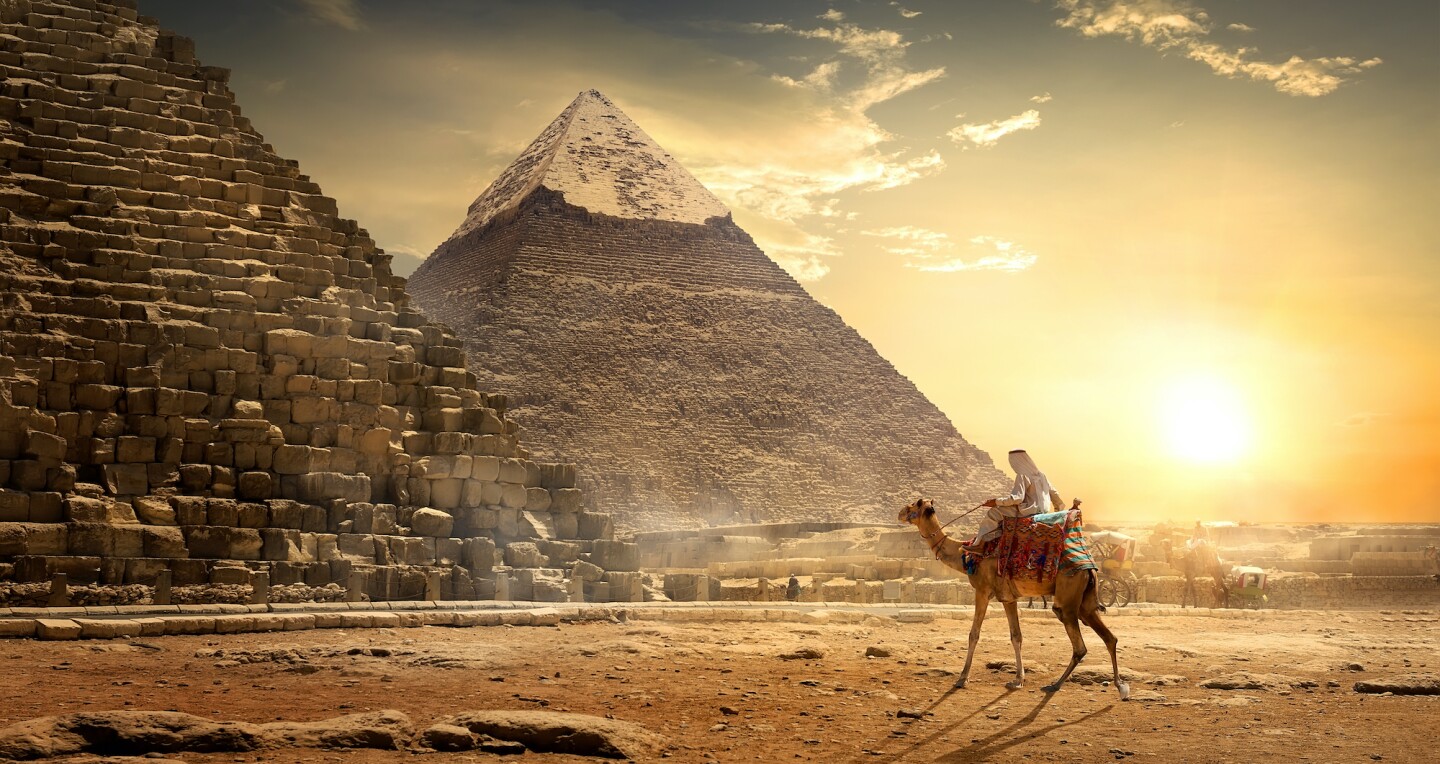Overview
Can’t miss things to do in Egypt
Egypt’s ancient rulers competed to outdo each other by scattering a cache of lofty temples across the land. The Pyramids of Giza, Luxor’s Karnak and Valley of the Kings, and Ramses II’s grandiose pat-on-the-back at Abu Simbel are the highlights of the pharaohs’ marvelous architectural achievements, but factor time during your visit to explore smaller relics such as the Kom Ombo and Philae temples as well. When temple fatigue sets in, replenish energy levels by discovering Egypt’s natural wonders. More ancient than any pyramid, this nation’s jagged mountain peaks, sinuous Nile, and empty desert expanses are superlative reminders that manmade treasures are only a part of Egypt’s bountiful beauty.
Food and drink to try in Egypt
Egyptian cuisine is infused with fresh and hearty flavors, with influences from the North Africa, the Middle East, and the Mediterranean. This is comfort food at its best: non-fussy, wholesome dishes where seasonal produce plays the starring role. Restaurant menus generally feature kebabs (grilled meat on a skewer) with simple meze-style plates of crispy salads and dips. Heavier specialties include mahshi (stuffed vegetables) and fatteh (chicken or beef with rice and bread, all immersed in a garlic sauce), and the more adventurous hamam (pigeon) and molokhia (a glutinous mallow-leaf stew).
Culture in Egypt
Egyptians are a boisterous, pragmatic people with a sharp sense of humor used to shrug off the hardships of life. Traditional culture and religion still play a prominent role in society, and close-knit family ties are at the heart of daily life. Although conservative in values, you’ll find Egyptians anything but insular. This is a nation that adores having fun and any excuse is used for a celebration. Not known for being stand-offish, and rightly proud of their history, a booming ahlan wa sahlan (“Hello and welcome!”) followed by invitations for tea and a chat are extended to all visitors. Accept those on-the-spot offers and you’ll experience warm and effervescent Egyptian hospitality at its best.
Shopping
Put your haggling hat on and get ready for an adventure. The souk is the quintessential Egyptian shopping experience where you can unearth everything from tawdry plastic pyramids to antiques. The wares at these markets have no fixed prices; the final sum depends upon your haggling skills. But keep in mind: Haggling for your treasure isn’t supposed to be about beating the shopkeeper down to the lowest price possible. It should be light-hearted and fun. For the best souk action in Egypt, head to Cairo’s Khan al-Khalili, whose winding lanes are crammed with textiles, copper workers, perfume, and a bewildering array of kitsch souvenirs. If you’re searching for antiques, look for bargains in Alexandria’s Souk Attareen.
Practical Information
Egypt’s summer (Jun–Aug) is stifling and best avoided unless you enjoy searing temperatures. Spring (Mar–May) and fall (Sep–Nov) are more manageable heat-wise, but winter (Dec–Feb), with its pleasantly warm, sunny weather, is when most choose to visit. Visas are required; most nationalities can buy one upon arrival. Most international flights land at Cairo (CAI) but there are also services direct to Alexandria’s Burg al-Arab (HBE), Luxor (LXR), and Sharm al-Sheikh (SSH). The bus network is extensive. The train is useful for journeys between Cairo and Upper Egypt (Luxor, Aswan), and to Alexandria. The language is Egyptian Arabic; the currency is the Egyptian pound, pronounced “guinea.” Electricity is 220 volts with European 2-pin sockets.
Guide Editor
Jessica Lee is a travel writer who specialises in the Middle East, Turkey, and North Africa. She likes deserts and mountains, and is on a constant quest to find the perfect hummus.






